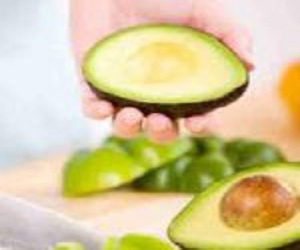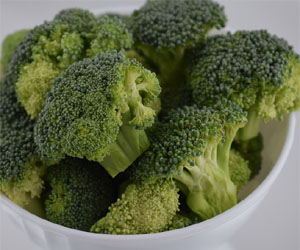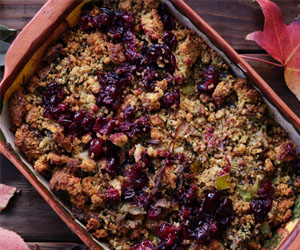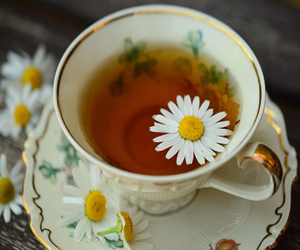


The Remarkable Power Of Thankfulness

In our busy, often hectic lives, the pursuit of well-being and happiness is a common goal. While many factors contribute to our overall sense of wellness, gratitude has emerged as a transformative practice that can significantly enhance our well-being. The act of appreciating the positive aspects of life, no matter how small, has the potential to bring profound improvements to our physical, emotional, and mental health.
Gratitude, as a concept, is more than just saying "thank you" or acknowledging polite gestures. It is a deep, mindful appreciation for the things, people, and experiences that enrich our lives. Here's how gratitude is closely connected to enhancing well-being and why it's worth integrating into our daily routines.
Reducing Stress And Anxiety: One of the most significant benefits of gratitude is its stress-reduction effects. When we focus on the positive aspects of our lives, we activate the brain's reward system, releasing "feel-good" neurotransmitters like dopamine and serotonin. These chemicals counteract the stress hormones in our bodies, leading to increased feelings of relaxation and overall well-being.
Promoting Positive Emotions: Gratitude cultivates positive emotions such as joy, contentment, and happiness. Regularly practicing gratitude allows us to dwell in a state of positivity, which, in turn, has a powerful impact on our overall mood and emotional health.
Enhancing Physical Health: Gratitude doesn't only benefit mental well-being; it also has a positive impact on our physical health. Studies have shown that grateful individuals tend to engage in healthier lifestyle choices, experience better sleep, and even have improved immune system function.
Fostering Resilience: Gratitude is a tool for developing resilience and the ability to bounce back from adversity. When we can find reasons to be thankful, even in challenging situations, it strengthens our emotional fortitude and helps us face life's difficulties with greater determination.
Strengthening Relationships: Expressing gratitude toward friends, family, and colleagues is an essential aspect of nurturing relationships. It not only fosters deeper connections but also builds a sense of trust and mutual appreciation, which are critical for overall well-being.
Increasing Life Satisfaction: Gratitude promotes life satisfaction by making us more aware of the positive aspects of our lives. It helps shift our focus from what we lack to what we have, instilling a greater sense of fulfillment.
To incorporate gratitude into your daily life and enhance your well-being, consider starting a gratitude journal. Each day, take a moment to reflect on and write down three things you are thankful for. These can range from simple pleasures like a beautiful sunset or a good cup of coffee to more profound sources of gratitude, such as loving relationships or personal accomplishments.
Gratitude is a powerful practice with the potential to significantly enhance our overall well-being. By reducing stress, promoting positive emotions, enhancing physical health, fostering resilience, strengthening relationships, and increasing life satisfaction, gratitude is a versatile and accessible tool for improving our quality of life. In a world filled with challenges, cultivating gratitude is an invaluable and transformative practice that can bring about a profound sense of well-being and happiness.






A Path To Nutritional Well-Being
 2. Fullness Awareness: Mindful eating promotes awareness of your body's hunger and fullness cues. Superfoods are often highly nutritious and filling, which means you can satisfy your hunger with smaller portions. Being mindful of these cues can help prevent overeating and promote better portion control.
2. Fullness Awareness: Mindful eating promotes awareness of your body's hunger and fullness cues. Superfoods are often highly nutritious and filling, which means you can satisfy your hunger with smaller portions. Being mindful of these cues can help prevent overeating and promote better portion control.
Navigating The Path To Positive Changes
 3. Exploring Gluten-Free Alternatives: Fortunately, the market offers a wide variety of gluten-free alternatives to traditional gluten-containing products. From gluten-free bread and pasta to baking mixes, you can enjoy many of your favorite foods without sacrificing taste or quality.
3. Exploring Gluten-Free Alternatives: Fortunately, the market offers a wide variety of gluten-free alternatives to traditional gluten-containing products. From gluten-free bread and pasta to baking mixes, you can enjoy many of your favorite foods without sacrificing taste or quality.
4. Meal Planning: Meal planning becomes an integral part of a gluten-free lifestyle. Planning your meals and snacks in advance ensures that you have gluten-free options readily available and reduces the risk of accidental gluten exposure when dining out or on the go.
5. Cooking And Baking Skills: For many, transitioning to a gluten-free lifestyle involves developing new cooking and baking skills. Gluten-free flours, thickeners, and other ingredients may behave differently than their gluten-containing counterparts. Embrace the opportunity to explore new recipes and cooking techniques.
6. Dining Out And Travel: Dining out and traveling can pose unique challenges for those on a gluten-free diet. It's essential to communicate your dietary needs clearly to restaurant staff and do some research in advance to identify gluten-free options at your destination.
7. Nourishing Your Body: A gluten-free lifestyle can provide an opportunity to rethink your dietary choices. Focus on nourishing your body with whole, unprocessed foods like fruits, vegetables, lean proteins, and gluten-free grains like quinoa and rice. This can lead to better overall health and well-being.
8. Seeking Support: Transitioning to a gluten-free lifestyle can sometimes feel overwhelming. Seek support from online communities, local support groups, or a registered dietitian who specializes in gluten-related issues.
Unleashing The Power Of Cooking Hacks
 1. The Freezer Is Your Ally
1. The Freezer Is Your Ally
Your freezer can be a valuable tool in saving time and reducing food waste. Here are some hacks related to the freezer:
Pre-Chop And Freeze: When you have an excess of fresh herbs or vegetables, chop them up and freeze them in ice cube trays with a little water. This way, you always have prepped ingredients on hand for your recipes.
Make Frozen Herb Butter: Mix chopped herbs with softened butter, roll it into a log using parchment paper, and freeze. Slice off portions to use as needed, adding a burst of flavor to your dishes.
2. Citrus Zest Enhancement
To enhance the flavor of your recipes with citrus zest, consider these hacks:
Pre-Zest And Store: Zest your citrus fruits before you use them, and store the zest in an airtight container in the freezer. It retains its freshness and can be used straight from the freezer.
Zest In Ice Cubes: You can also freeze zest in ice cube trays with a small amount of water. Then, simply pop out a cube when needed.
3. Faster Fruit Ripening
Do you need to ripen your fruits quickly? Try this hack:
Ripen In A Paper Bag: Place unripe fruits like avocados or bananas in a paper bag and fold it closed. The ethylene gas they produce will speed up the ripening process.
 Emotional Regulation: One of the primary benefits of meditation is its capacity to improve emotional regulation. Through regular meditation practice, individuals learn to observe their emotions without judgment. This awareness of emotional states allows them to respond to challenging situations with greater equanimity. Instead of reacting impulsively, individuals develop the ability to choose their responses consciously. This leads to a more balanced emotional state and a reduced likelihood of emotional outbursts or suppression.
Emotional Regulation: One of the primary benefits of meditation is its capacity to improve emotional regulation. Through regular meditation practice, individuals learn to observe their emotions without judgment. This awareness of emotional states allows them to respond to challenging situations with greater equanimity. Instead of reacting impulsively, individuals develop the ability to choose their responses consciously. This leads to a more balanced emotional state and a reduced likelihood of emotional outbursts or suppression.
Stress Reduction: Stress is a significant contributor to emotional turmoil, and meditation is a powerful stress-reduction tool. By engaging in meditation, individuals activate the body's relaxation response, which counteracts the stress response. This, in turn, reduces the intensity of negative emotions associated with stress, such as anxiety, anger, and frustration. Regular meditation practice can lead to a more composed and emotionally stable state.
Increased Self-Awareness: Meditation fosters a deep sense of self-awareness. By delving into their inner selves, individuals become attuned to their emotions, triggers, and thought patterns. This self-awareness is instrumental in emotional well-being, as it helps people identify and address emotional issues effectively. When you know yourself, you can work on self-improvement and emotional healing.
Enhanced Resilience: Resilience is the ability to bounce back from adversity and challenges. Meditation enhances resilience by promoting a more positive outlook on life and building emotional strength. It helps individuals view difficult situations as opportunities for growth and transformation rather than insurmountable obstacles.
 Chamomile: Chamomile is perhaps one of the most well-known herbs for stress relief. Its gentle, soothing qualities can help calm the mind and relax the body. Chamomile tea is a popular choice, but it's also available in the form of supplements or essential oils.
Chamomile: Chamomile is perhaps one of the most well-known herbs for stress relief. Its gentle, soothing qualities can help calm the mind and relax the body. Chamomile tea is a popular choice, but it's also available in the form of supplements or essential oils.
Lavender: Lavender's delightful aroma is not just pleasant; it has calming properties that can reduce anxiety and stress. You can use lavender essential oil in a diffuser, add a few drops to your bath, or even apply it topically.
Valerian Root: Valerian root is known for its sedative effects and is often used to improve sleep quality. Better sleep can significantly reduce stress. It's available as a supplement or in herbal tea blends.
Ashwagandha: Ashwagandha is an adaptogenic herb that can help the body better manage stress. It supports the adrenal glands and promotes a sense of calm and relaxation.
Nature's Soothing Elixir
 The Science Of Aromatherapy
The Science Of Aromatherapy
Aromatherapy, the practice of using essential oils for therapeutic purposes, capitalizes on the connection between our sense of smell and the brain's limbic system, which governs our emotions. The aromatic compounds in essential oils can influence our mood, emotions, and even our physical well-being.
Stress Reduction: A Holistic Approach
Stress affects us on multiple levels, and a holistic approach to its reduction is essential. Essential oils can address the interconnected aspects of stress, providing relief on both emotional and physical levels.
Emotional Stress Relief
One of the most well-known benefits of essential oils is their ability to alleviate emotional stress. Oils like lavender, chamomile, and rose can have a calming and soothing effect on the mind. Inhaling these fragrances or using them in massages can help reduce anxiety, lower stress levels, and promote a sense of well-being.
Physical Stress Relief
Stress often manifests physically, leading to muscle tension, headaches, and other discomforts. Essential oils like eucalyptus, peppermint, and ginger are valuable allies in relieving physical stress. They can be applied topically, diluted in carrier oils, or added to bath water to ease muscle tension and reduce headaches.
Stress Reduction Rituals
Incorporating essential oils into your daily routines can create a calming and stress-reducing environment. Diffusers are an excellent way to disperse the aroma throughout your space, but you can also use oils in baths, massages, or even by simply inhaling the scent from a tissue or handkerchief. Establishing rituals like these can be an effective way to manage stress.
Your Journey To Complete Well-Being
 Nurturing The Mind
Nurturing The Mind
A healthy mind is a crucial component of holistic health. It's about reducing stress, anxiety, and negative thought patterns. Holistic practices such as meditation, mindfulness, and self-awareness are essential for nurturing your mental health. These techniques promote emotional stability and clarity.
Caring For The Body
Your physical well-being is a key element of the holistic health journey. It involves embracing a balanced diet, regular exercise, and sufficient rest. Proper nutrition provides essential nutrients, exercise strengthens your body, and adequate sleep allows for physical recovery and rejuvenation.
Nurturing The Spirit
Nurturing the spirit involves finding a sense of purpose and a connection to something greater than yourself. This connection could be through religious faith, spirituality, or simply a deep appreciation for the world around you. It offers inner peace and emotional resilience.
The Holistic Health Path
Embarking on the path to holistic health is a unique journey for every individual. It begins with self-discovery, exploring your true desires, and aligning your daily life with your values and intentions. This process often involves letting go of things that no longer serve you, whether they are unhealthy habits, toxic relationships, or sources of stress.
Mindful practices, such as meditation and mindfulness exercises, are invaluable companions on this journey. These practices help you stay present, reduce stress, and gain clarity about your life's direction.